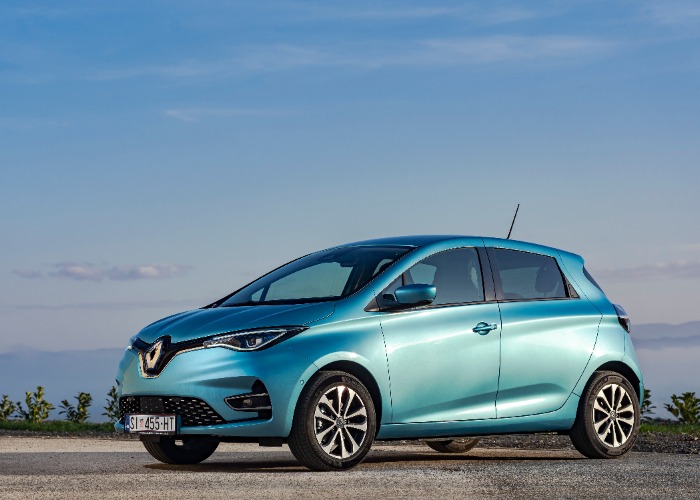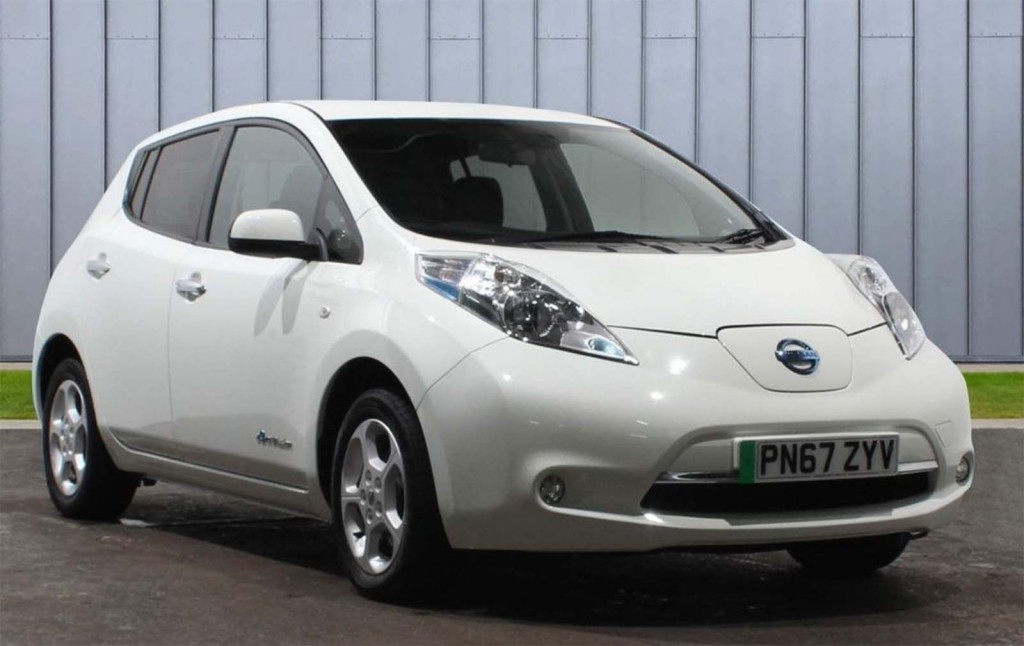Cheapest electric cars to insure UK 2023: Renault Zoe, BMW i3 and more

Looking to switch to an electric motor but want to avoid the massive insurance bills. We reveal the 10 electric cars boast the lowest premiums.
Electric cars are becoming ever more keenly desired by drivers.
Indeed, figures from the Society for Motor Manufacturers and Traders (SMMT) shows that March saw significant increases in sales for both pure electric and hybrid vehicles.
While the price tag is a big consideration for all drivers thinking about an electric car, so too is the cost of insurance.
So which are the electric cars that will be kind to your bank balance when arranging cover?
Admiral, through news site ThisisMoney, has revealed the cheapest electric vehicles to insure. But are they any good? And how much are they likely to cost you in the first place?
Let’s take a look:
10 ‒ Polestar 2
In 10th place is the Polestar 2, which comes with an RRP of £43,150.
According to Admiral, the average quoted premium for a Polestar 2 in March came to £707. That works out at £100 less than the average quote to all drivers last month.
It wins praise from the reviewers at WhatCar? for its smart interior and safety performance, though it is reportedly well behind the class leaders for things like range, charging speed and driving dynamics.
9 ‒ Kia EV6
Just ahead is the Kia EV6, for which the average insurance quote was £680.
It’s not a cheap motor, with an RRP starting at £45,245.
You get a hell of a car for that price though, with a great range, fast charging and long warranty. It’s not perfect though according to WhatCar?, with a shallow boot and slightly firm ride.
8 ‒ BMW i3
The BMW i3 has an RRP starting at £30,980, so it’s a bit more affordable than some of the cars on this list.
It’s a fun drive too, with a decent amount of kit.
Insuring it is pretty kind on the bank balance too, with a typical quote of £670 according to Admiral.
7 ‒ Kia e-NIRO
The e-NIRO will typically cost £661 a year to insure.
WhatCar? points out that it was one of the first pure electric cars which were available at a decent price, and offers a decent range.
In fact, the reviewers point out it has a range that “will embarrass many more expensive electric cars”, having managed 253 miles in the magazine’s real-world use tests.
The ride is apparently a little stiff around town, but smooths out on longer journeys, with lovely handling.
Prices start from £27,745.
6 ‒ Nissan Leaf
The Nissan Leaf is kind on your bank balance for both purchasing and insuring, with typical costs of £28,995 and £643 respectively.
It does well for boot space and boasts plenty of excellent kit as standard, though the WhatCar? team suggest it has fallen behind newer and more accomplished rivals.
5 ‒ MG4 EV
The MG4 is also pretty affordable when it comes to purchasing, with a typical price starting at £26,995.
On the insurance front, Admiral reckons the average quote in March came to just £590, winning it even more favour among budget-conscious drivers.
The WhatCar? team reckons the car represents “staggering value for money”, with a competitive range, a fast charge and a long warranty.
And while some rivals are a bit more polished, they will come with a much higher price tag.
4 ‒ MG ZS EV
Back-to-back MG motors, this time with the ZS EV taking fourth spot.
It’s a bit more costly to buy, starting at £30,495, though the insurance cost is lower than its stablemate.
Admiral reckons it had an average quote of £588 in March.
Again, you get a hell of a lot for your money, with reviewers praising its long range, practicality and how well equipped it is. However, it isn’t the fastest on the charging front, while it offers a fairly “mediocre” drive too apparently.
3 ‒ Mini electric
There are few more iconic-looking motors than the Mini, and you can even get an electric version now.
It’s a “compelling” option too, according to WhatCar?, who point out its quality interior and nippy acceleration.
It suffers from a “tiny range” though, which means it may only be suitable as a second car for most buyers.
Prices for the Mini electric start at £32,550, while insuring it will set you back an average of £576 a year according to Admiral.
2 ‒ Volkswagen ID.3
Second spot goes to the ID.3 from Volkswagen, which has an average insurance quote of £532.
It is a pricey motor to purchase new though, with prices starting at £39,425.
It wins praise from WhatCar? for being a “remarkably well-rounded” small car, particularly because of how fun it is to drive.
Alongside its sprightly performance, it also stands out for its solid range alongside how well it retains its value.
That said, the interior is described as “iffy” by the reviewers.
1 ‒ Renault Zoe
First place though goes to the Renault Zoe, which will only set you back an average of £528 for a year of comprehensive car insurance cover.
It is one of the cheaper motors on this list, costing from £29,995 brand new.
The car is described as “fairly practical” by WhatCar?, and boasts a longe range between charges than some of its big rivals.
However, it has a significant red flag in that it is missing safety kit, which is why Euro NCAP gave it a pathetic zero star rating for safety.
Comments
Be the first to comment
Do you want to comment on this article? You need to be signed in for this feature
